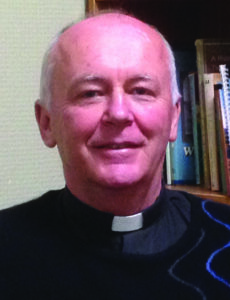The Interior Castle of St Teresa of Jesus of Ávila
Part 6 of 7
The Sixth Mansions are the most complex, longest and dense of the seven Mansions! They occupy eleven chapters compared to the three chapters for the Fourth Mansions. A single reading of the text will not suffice -- a life time is required! Never is humility needed more to get to grips with this work of spiritual genius.
The soul is on fire with love for Christ – “the soul is wounded with love for its spouse.” However, St Teresa sensibly warns us from the beginning “what interior and exterior trials the soul suffers before entering the seventh dwelling place.” That is Christ-like holiness. A dark night, the great trials, may be the worst we ever experience. In her own life St Teresa experienced many trials, especially from those close to her within the Carmelite Order. Be warned. The servant is not greater than the Master.
Of course, St Teresa is primarily concerned about God’s deepening relationship with us and its fullness in the Seventh Mansion. The Sixth Mansion has been called the mansion of the surrendered heart or mystical betrothal [before the spiritual marriage]. It is also the part where St Teresa explains with great skill as a Doctor of Prayer, true extraordinary mystical experiences: locutions, divine touch, wounds of love, flights of the spirit, rapture, visions, insights into God: all from the unfathomable generous mystery of God.
These extraordinary actions of God are not holiness, and may even be a distraction if given too much attention. Holiness is love and the secret of love is to do the will of the Father, humbly, like Jesus on the Cross.
St Teresa also points out how to detect false mystical experiences, and also what should be our humble response to true gifts from God. It is painful to be so loved by such a God. It should never make us think we are better than others.
St Teresa is writing as one who has been through the Sixth Mansion herself. She is telling us what may happen if it is God’s will; what God may do or give us. It is God’s choice. We cannot earn or deserve these gifts. So, it is never an occasion for our own self-glorification.
The saint wrote this book under obedience in order to record God’s activity in his friends during this time of transition. We are being broken and dispossessed in order to possess God. We continue to keep our eyes on him, not on ourselves. God is taking over more and more. We have no time to think about ourselves. Our old self is dissolving and healed. We are becoming more free of ourselves. Someone new is being born or reborn. This is the heart of the Sixth Mansion.
But it is a very painful death, a real dying to self. We are being crucified, the only path to union with Christ. We will become less and God will become greater. We become poorer in spirit and child-like. A study of the life of St Therese of the Child Jesus will show us what these trials are like. The Sixth Mansion is not for spiritual babies.
Also, it is very important to say today, where I suspect many have not read St Teresa’s teaching. It has particular relevance today when there are many false mystics claiming special visions from God which they immediately publish. St Teresa teaches us how to discern if spiritual favours are from God.
St Teresa deals with locutions, divine words addressed to the soul. How can we tell if they from God rather than from the devil or our imagination? Basically, by the effects on our lives. If we experience more peace and comfort, then they may be from God. When God speaks we will know. She writes, “inevitably when they are divine, the greater the favours, the less the soul esteems itself, and the more keenly it remembers its sins.” At the same time, there is a great calm. If we are left with discomfort, confusion or conflict within, take care take advice from a spiritual director.
St Teresa also discusses ecstasy and rapture. She writes, “The soul being purified, God unites it to himself in a way known only to him and the spirit.”
It is divine knowledge being shared with his friends. The soul is aware of the burning of his light and glory in their heart.
The most mystifying experience is the flight of the spirit. She writes, “The soul suddenly feels so rapid a sense of motion that the soul appears to hurry away with a speed which is very alarming, especially at first.” The waters of love are let loose, God is so close. No longer are we carrying water as in earlier mansions. Now the soul is riding the very waves of God’s love.
The soul needs courage, faith and confidence in God’s love to let God have his way. God is weaning us from worldly attachments by giving us a true sense of his love. This direct experience of God’s greatness is unforgettable. Again and again, St Teresa reminds us that what matters is the effects of these gifts from God; are we more peaceful, more humble, open to God’s will, more able to be used by God for his kingdom?
At this stage of the Christ-life, the person can be aware of Christ close at hand and knows him truly. St Teresa warns us not to desire such visions. It will be a greater responsibility for us to serve his majesty. Also, we must leave it to God to give to us if he wishes, His will is our concern, not our self-indulgence. Our desires can deceive us. St Teresa writes, “humility is the truth, for it is most true that we have nothing good of ourselves
but only misery and nothingness; whoever ignores this lives a life of falsehood.”
St Teresa is aware of how close the soul is to the Seventh Mansion and how tortured it is at the distance from God. We cannot be filled unless we are empty. All our good deeds are as nothing. She writes, “Our nature is very timid and lowly when it comes to something so great ... some truths about the grandeur of God remain so fixed in the soul.”
It is here in the desert that God will speak to a person’s heart. It is a place of waiting. We are not in control. The saint calls these experiences and others like them extreme spiritual torments. The desires of love are intense and grow more intense. Let us be grateful for God moving in us and drawing us to himself. To him be the glory.



 Entries(RSS)
Entries(RSS)